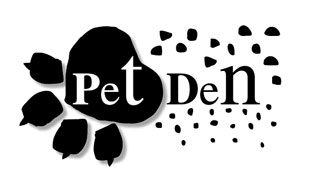|

Feeding your dog:
A
balanced diet is a must
Obesity is a major problem in the world today. Just as many humans
are victims of obesity, some pets too are increasingly becoming victims
of obesity, due to over feeding and wrong diet.
Are you a pet owner and if so, how responsibly do you feed your pets?
No matter how much you love your pets, make sure you do not over feed
them and make them obese.
Today we give you some valuable tips about feeding your pet dogs.
Like humans, dogs too require a well balanced diet to keep them
strong, healthy and active. A healthy diet therefore should consist of
proteins, fat, carbohydrates, vitamins, minerals, trace elements and
water.
So, one of the important things to keep in mind when it comes to
feeding a dog, is to give it nutritionally balanced food, whether you
buy commercial dog foods or prepare it at home.
Depending on your dog's age and also the level of activity, you must
ensure that about 15 to 30 per cent of the food it gets comprises
proteins. It is necessary for the growth of the dog and also to repair
and maintain healthy muscles, bones and internal organs.Fat which is a
concentrated source of energy helps a dog use fat-soluble vitamins (A,D,E
and K) and also keeps its skin and coat healthy.
Carbohydrates, sugars and starches, provide your dog with calories
and thereafter energy. Carbohydrates also supply fibre and roughage.
Fibre helps prevent constipation, diarrhoea and other intestinal
problems while roughage helps clean the digestive tract to break down
food.
Vitamins are needed to help the body perform vital functions such as
growth and fertility. Even though dogs manufacture some vitamins such as
vitamin C, it needs to be given a diet rich in all vitamins. Minerals
also help to regulate most body functions. For instance, calcium and
phosphorous are needed to develop strong teeth and bones in puppies and
young dogs. However, as with vitamins, a mineral supplement should be
given to your pet only if recommended by your pet's veterinarian.
Trace elements include copper, cobalt, iodine, iron, zinc and
manganese. They are needed only in small amounts and most food you may
give your pet dog would contain them.
When you talk about feeding your dog, don't think you should focus
only on solids.
It is important to pay attention to liquids, especially water, which
is an essential compement of its diet.
A dog's system cannot store much water, therefore make sure to give
it plenty of fresh water so that it can carry all the nutrients
throughout your dog's system and also eliminate water from the body.
Here are some points to
remember.
* Commercial foods are convenient even though they are expensive.
They generally come in three forms: dry, semi-moist and canned.
They are a combination of plant and animal sources that meets your
dog's daily nutrient requirements.
* Beef and chicken are good sources of protein, as are bone meal and
soybean meals found in commercial foods.
* Do not over supplement your dog - Vitamins A,D,E and K are fat
soluble. It means the excess is stored rather than excreted. As some
vitamins can accumulate in toxic amounts, be careful.
* Canned foods are about 75 per cent water, while dry foods have only
about 10 per cent water. |

